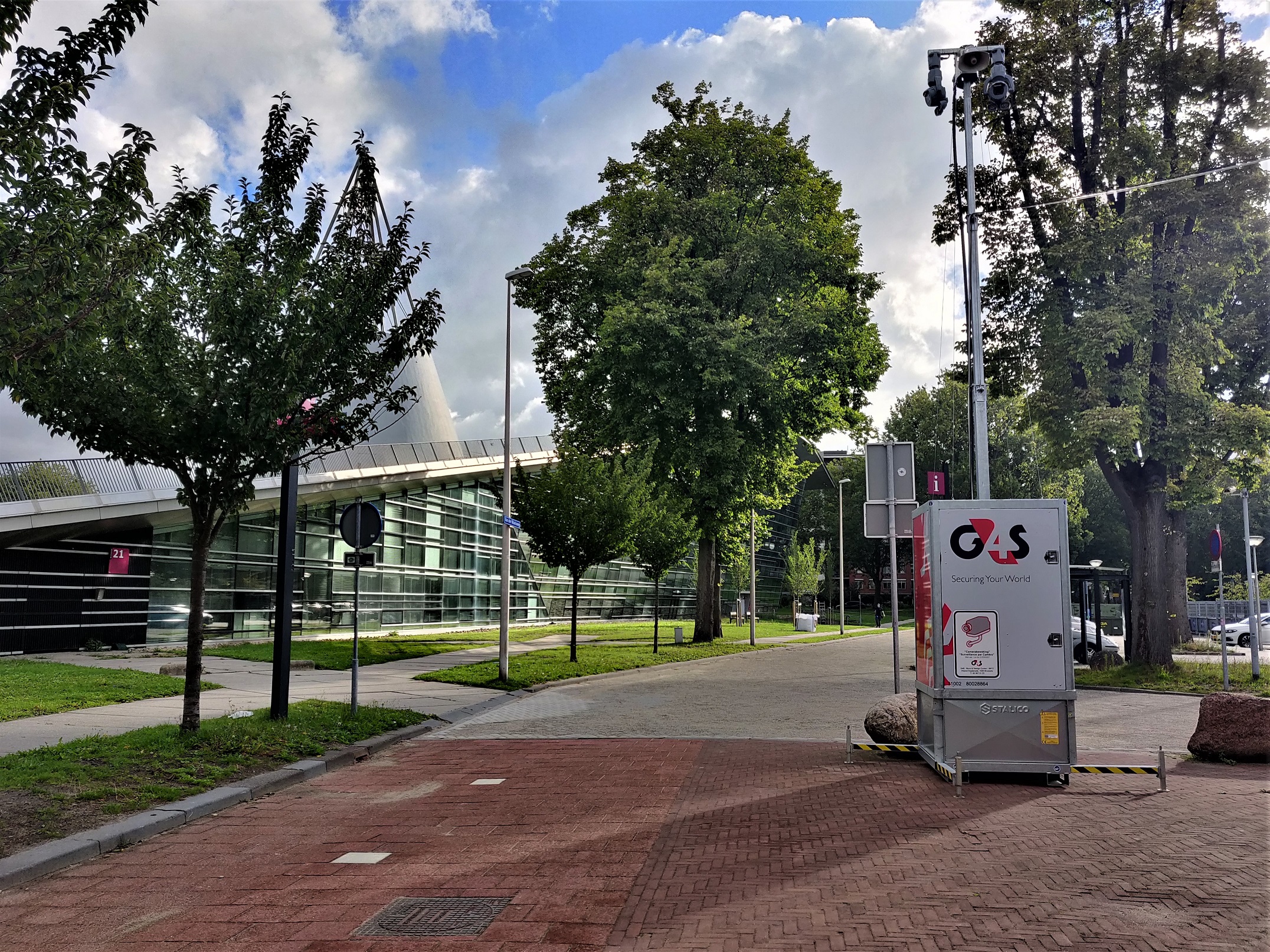Cameras will be hung in eight busy places on campus to check if people are keeping enough distance. The cameras will remain for at least two months.
Camera surveillance on the Prometheus Square. (Photo: Marjolein van der Veldt)
Now that the academic year is around the corner, it is gradually getting busier on campus. From Monday, students will start a combination of online and physical learning. First year bachelor and master students will be given priority in the latter. They may come to campus in small groups at specified times. This means that not only will there be more students, but also more teaching and support staff in and around TU Delft buildings.
To make the campus ‘corona proof’, TU Delft announced that it would be taking additional preventive measures. To this end, the buildings are only accessible with a campus card, study places are only available upon the advice of an academic counsellor (in Dutch) and chairs have been removed from meeting rooms and other spaces.
And what is the most striking measure? TU Delft will keep an eye on the distance that people are keeping from each other.
It will install cameras for this purpose at the following locations:
• Architecture and the Built Environment car park
• Jaffalaan 9 (at Landbergstraat)
• Between C. Huygensweg and Prometheusplein
• Leeghwaterstraat (at IDE/3mE)
• Cornelis Drebbelweg
• Balthasar van der Polweg
• Kluyverweg
• Van der Maasweg
The camera images will not be saved, but will be observed by a trained staff member in the TU Delft control room.
If people do not maintain a distance of one-and-a-half metres, the control room staff member can call in G4S, the security company that operates in TU Delft buildings. The security staff member decides whether to intervene or not.
- Only some of the corona measures are mentioned in this article. Read more about TU Delft’s corona protocol in Delta next week.
Over the summer, five working groups worked (in Dutch) on TU Delft’s plans to take effect on 1 September. The decision to install cameras was taken in summer by the Executive Board, says press spokesperson Karen Collet.
Vice-rector Magnificus Rob Mudde informed the Students Council about the cameras last Wednesday. “They will only be used to monitor the crowd. The cameras will be hung at about seven metres height, which has the positive effect of limiting facial recognition,” said Mudde at the time.
TU Delft says that the control room staff member only gets a bird’s eye view of the campus and will mostly see the tops of people’s heads. However, even if facial recognition is limited, it does not mean that it is entirely impossible. In a FAQ about the cameras, TU Delft writes that despite the height of the cameras, faces will be visible.
The plan is that the cameras will remain for two months. “We will then evaluate the situation,” said Mudde at a meeting with the Students Council. TU Delft hopes to find permanent solutions during that period for any issues, thereby eventually negating the need for cameras. Collet says that “It is not the intention that the cameras stay forever.”
Do you have a question or comment about this article?
a.m.debruijn@tudelft.nl


Comments are closed.